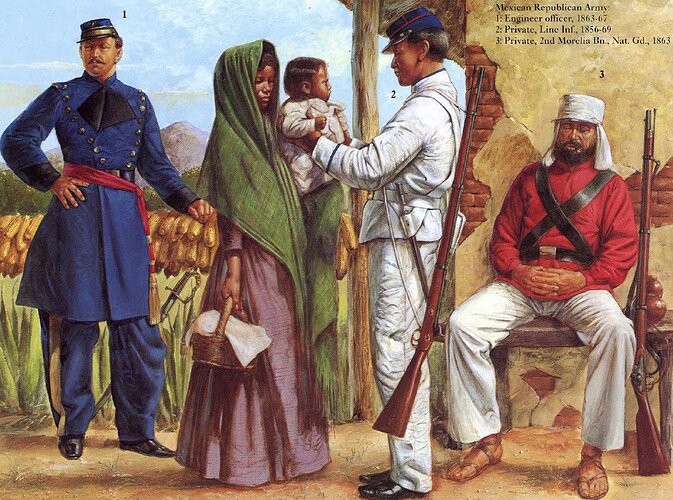About the Salteador, I always wondered, why its national guard upgrade is called “Vigilantes”?
For what I know about history, they are meant to represent the irregular guerrilla forces at the beginning of Mexico’s war of Independence that eventually became standarized community police corps, similar to the concept of the State Militia.
But “vigilante” is just the spanish for “guard”, or “keeper”.
The Vigilante resembles a bit the “2nd Morelia Battalion National Guard” troopers. Or am I missing something?
I’m not sure what your issue is. In English, the definition of vigilante is “a member of a self-appointed group of citizens who undertake law enforcement in their community without legal authority, typically because the legal agencies are thought to be inadequate,” and that is exactly what you’re describing. They are “guards”, but without legal authority. Does it not carry any of that connotation in Spanish?
1 Like
I feel the word “vigilante” is often perceived in Latin America as meaning a private paid security guard instead of the equivalent meaning of vigilante in English. In sensu strictu the term is valid in Spanish, but in practice the most common usage does not align so well in Latin America.
2 Likes
It didn’t know about it, at least not in that sense. In spanish, “vigilante” is just an adjective which means “guard”, “keeper” or “watchman”. It does not usually refers to irregular vigilance corps.
At least here in Mexico, the concept of “vigilantes” is mainly applied to paramilitary groups that perform as law enforcers, but they are not called like that.
Yes, the “vigilantes” in Latin America are mainly private security guards, like the ones in jails, schools or condominiums, they can use the force but still obeying the law
